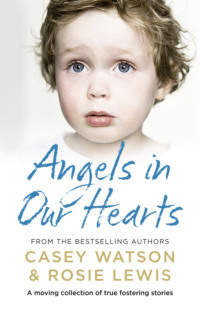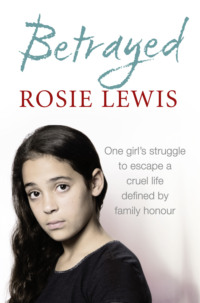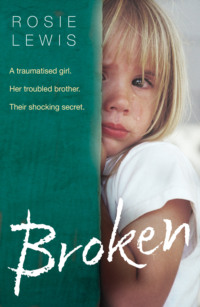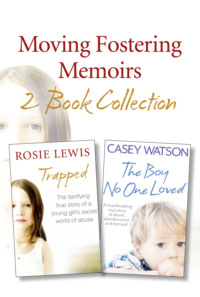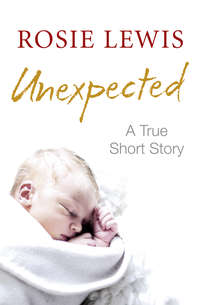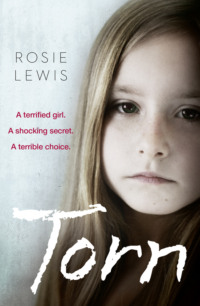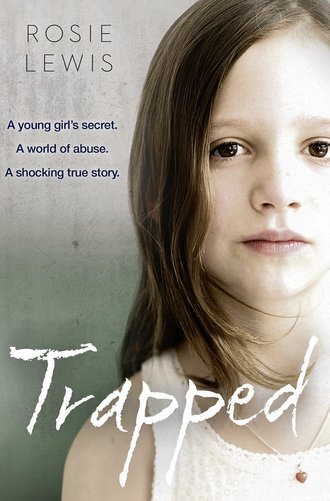
Полная версия
Trapped: The Terrifying True Story of a Secret World of Abuse
At least with her hair now clean and less matted, she looked a bit more ‘normal’, bordering on pretty actually, when she wasn’t flapping her arms in a crazy way. I wondered how she behaved at school and whether she had any friends she could play with. She couldn’t seem to sit still, even for a minute. It was as if she had restless leg syndrome that had spread to her whole body (my mum would have called it ‘Syvitis Dance’). Whatever the cause, her strange actions were exhausting to watch and my appetite was shot to pieces by the time we sat down for our meal that evening.
Phoebe’s eyes bulged when I put her dinner on the table, staring at her plate with such horror that anyone would have thought I’d just unveiled a lamb’s head instead of pizza Margherita.
‘What’s wrong, Phoebe? Don’t you like pizza?’
I had tried to find out what she might like to eat during the day, but each time I mentioned food she had gagged. Breakfast had been a small bowl of porridge, Phoebe’s untouched pancake polished off by Emily, who hated to see good chocolate going to waste. She had refused lunch so I was keen for her to eat something that evening. I thought I couldn’t go wrong with a trusty Italian meal. Every child I had fostered so far had had food issues, but usually it was a case of trying to stop them from gorging themselves until they were sick.
Phoebe pushed her plate away, retching. ‘I want porridge,’ she choked, her eyes irresistibly glued to the source of her revulsion.
Emily lowered her own pizza slowly to her plate and Jamie screwed up his face, staring at Phoebe in disgust. ‘Can you stop her making that noise, Mum?’ he asked, his chin tucked close to his chest as if close to throwing up himself.
I whipped Phoebe’s plate away, slipping it onto the bookshelf behind me. Her shoulders sagged in relief but she continued to make gagging noises.
‘Alright, that’s enough, Phoebe. Take some deep breaths – it’s gone now. But you must tell me what sort of thing you eat at home, so I can get something you like.’
‘I only eat porridge,’ she said, her breath coming in short gasps. She was almost in tears. Her eyes were still bulging as if food were somehow a threat to her safety.
‘Yes, I know you prefer porridge for breakfast, but what do you like for lunch and dinner?’
‘What do you like for lunch and dinner?’ she mocked, then clamped her hand over her mouth. My concern was suspended by a moment’s jubilation. She realises, I thought, she actually knows what she’s doing. I wasn’t quite sure what the implications were but for some reason I was filled with a sense of optimism.
‘I only eat porridge, nothing else. Oh, except chocolate. Anything else makes me …’ she retched again, exaggeratedly. ‘Blwha, sick.’
Emily and Jamie exchanged disgusted glances.
‘Can we leave the table, Mum?’ they chorused.
‘Yes, OK. You can watch TV while you eat your pizza, if you want,’ I said, breaking one of our chief house rules. Usually I was quite strict about eating our meals at the table. It was just about the only time in the day when we had a proper, uninterrupted conversation but if our chat was to be interspersed with Phoebe’s throat spasms, I supposed it was worth skipping.
Phoebe sat pinching her bare arm, her eyes staring glassily ahead, while I picked at the rest of my meal. Seemingly oblivious to the red marks forming on her skin, she increased the pressure, twisting and digging away with short, bitten nails. Just what is going on inside your head? I wondered, sensing a dark undercurrent.
That night I lay in bed, filled with a sense of impending doom. Phoebe had eaten very little that day, despite all my coaxing. Before she went to bed I had made her another bowl of porridge with a heavy grating of chocolate on top and she had nibbled at it but without any gusto. Could it be possible that porridge was literally all she ever ate?
Still, I thought, trying to focus on the positives, at least Emily and Jamie seemed to be coping well with Phoebe’s arrival. There were times when their own lives hadn’t been easy; their father and I had separated eight years earlier when they were much younger. I registered as a foster carer soon after my divorce and in a way I think fostering helped ease the transition from a nuclear to a single-parent family. Our house seemed much livelier with lots of children around, even those troubled and withdrawn. Though their dad, who lives less than a mile away from us, was and still is a big part of their lives, Emily and Jamie always missed the chaos that comes with being part of a full family, whenever it was just the three of us at home.
It was the sound of their laughter earlier that had helped me through the gruesomeness of our first full day with Phoebe. I felt so proud of them: not only were they kind and loving, they possessed a wonderful ability to laugh at the downright awful, a gift inherited from their father. Somehow, remembering their capacity for humour helped me in marshalling my own and my low mood slowly lifted.
But it wasn’t just fretting over Phoebe’s starvation diet that was keeping me awake: knots in my stomach reminded me that I had to supervise a contact session between Phoebe and her parents in the morning. When children are removed without parental consent, contact usually takes place under the supervision of contact workers employed by the local authority, but since Phoebe was in voluntary care, the arrangement was to be more flexible.
Curious as I was to find out what her parents were like, contact was one of the tasks of fostering that I dreaded. Looking after the children was often the easy bit; Looked After Children (LAC) reviews, Child Protection Conferences and contact sessions, in fact anything involving other adults was the unappealing side of the job as far as I was concerned. Being a natural introvert, I tended to shy away from meetings, particularly when there was the possibility of confrontation.
Turning to my side, I tuned in to the low hum of traffic drifting through my open bedroom window, trying to dismiss thoughts of Phoebe from my mind.
Chapter 6
The smart-looking couple stood a few feet inside the entrance of La Trattoria, their shoulders turned fractionally away from each other, expressions downturned. When he spotted us, the man, in his early 40s and tall, stepped forward with a confident air. Phoebe bounded ahead of us and ran to his outstretched arms, throwing her thin arms around his neck.
‘How have you been, my little sweetheart?’ Robin Steadman asked, smiling warmly as he lifted his daughter from the ground and tickled her side. She squealed with excitement. Slim but broad-shouldered, he looked immaculate in his double-breasted suit and tie, every inch the man about town. Salt and pepper, wavy hair was swept back from his tanned face; it was easy to imagine him sitting behind a shiny desk in a suave London bond broker’s office.
Phillipa, Phoebe’s mother, lingered behind: although clearly younger than her husband, she looked tired, concern etched onto her features. While Robin gave the impression he had just returned from some exotic holiday in Dubai, his wife looked as if this was her first venture into the sunshine for several months. Her skin appeared washed out and she gave off an anguished air. It seemed that Robin was coping with the sudden separation from his daughter with more ease than Phillipa.
‘Hello, darling,’ she said in lady-like, reedy tones, once Phoebe had released her grip on her father. I wasn’t sure if it was just her middle-class accent but her voice sounded brittle to me, lacking in any warmth.
‘Hello, darling,’ Phoebe repeated, rebuffing her mother’s attempt to cuddle up to her. Phillipa’s lips drew into a tight line. So, you find her parrot behaviour infuriating too, I thought, noticing the flash of irritation in her expertly kohl-lined eyes.
As Robin shook my hand the cuff of his shirt shifted, revealing an expensive watch on his wrist. ‘Shall we?’ he asked in an impressive, well-educated accent, gesturing to a nearby table. He smiled charmingly as he pulled out a chair for me to sit down. Waving Emily and Jamie along to the opposite end of the table, I seated myself between my children and the temporarily reunited family. It was close enough to monitor their conversation but far enough away to allow them a little privacy too.
Glancing around, I was grateful to see that the place was near-empty, in case the smell of pizza should set off Phoebe’s gagging again. Jamie scanned the drinks menu. Emily feigned an interest but every so often she took a surreptitious peep sideways, eyeing Phoebe’s parents. At 14, Emily was old enough to stay at home but had asked to come along. I think she was as curious to meet them as I was.
Once we were settled in our seats, Robin lifted his hand and seconds later a waiter appeared. Phoebe cuddled up to her father, bouncing up and down so that her head kept bumping into his chin. ‘Careful, darling.’ She ignored him, continuing to bob furiously and squealing loudly. Patiently, he craned his neck, ordering drinks over the top of her head.
Phillipa, by contrast, was perched nervously on the edge of the seat opposite Phoebe, her hands twisting a napkin. Expensively coiffured, with high cheekbones and thickly lashed blue eyes, she made me feel a bit scruffy in her presence and I began flattening down my disobedient hair. She should have been beautiful and yet an air of coldness shaded any radiance from shining through. She glanced towards me then quickly looked away, smiling towards her daughter. ‘So, what have you been up to, darling? Have you been keeping busy at Rosie’s?’ I got the feeling she made the enquiry because it was expected of her, rather than out of genuine interest. There was definitely a distance there.
‘Been keeping busy at Rosie’s?’
An uncomfortable silence followed Phoebe’s mocking of her mother, eventually broken by a self-assured Robin. ‘I bet you’ve been – the most …’ I couldn’t make out the entire sentence because the pair were snuggled so closely together, him whispering affectionately into her ear. Every now and again her bony hand rose up, touching her father’s cheek. It was as if Phillipa’s presence was superfluous to both father and daughter. Clearly, I wasn’t the only one to notice.
Phillipa lowered her gaze, looking ill at ease. I felt instant pity for her. Leaning across the table, I decided to try and engage her in conversation, an effort to ease her discomfort.
‘Do you mind if I ask you a few things, Phillipa?’
She shook her head. ‘Not at all.’
‘What does Phoebe like to eat? The only thing I can tempt her with is porridge.’
Phillipa reddened. ‘She’s fixated on cereal at the moment, I’m afraid. Becoming fanatical about certain things can be one of the effects of autism.’ She seemed to shudder when she mentioned her daughter’s condition. It was strange, really – she was so articulate that I should have been the one who felt intimidated and yet it was she who appeared flustered.
Embarrassed to delve into issues of hygiene with someone so refined but feeling obliged to investigate, I asked her why Phoebe’s hair was matted.
She didn’t directly look at me as she answered. ‘She hates water so we try and get bathtime over with as quickly as possible. I’m afraid she’s been even more obsessive about it lately – she just won’t allow me anywhere near her hair.’
At that moment Phoebe lunged across the table, catching her mother’s face with her fingernails. ‘Shut up,’ she screeched, ‘stop talking about me!’
Phillipa flinched, glancing around the restaurant with embarrassment. How difficult it must be, I thought, to have every outing ruled by someone so unpredictable. It would hardly be surprising if their marriage were under strain. Even so, they did seem to indulge rather than control Phoebe’s spoilt behaviour. Were they really that frightened of their own daughter’s tantrums that they couldn’t even persuade her to wash her hair? Robin lowered flattened hands through the air in front of his daughter, trying to placate her. ‘It’s alright, Phoebe. Mummy’s not going to talk about you any more.’ He had a rich, deep voice that would have been perfect for radio. ‘Ah, here we are, sweetheart,’ he said, as a hesitant-looking waiter lowered a tray of drinks on the table.
Phoebe peppered the next hour with outlandish actions and loud screeches. Phillipa sat meekly, watching as her unruffled husband tried to cajole his out-of-control daughter into calming down. Robin remained remarkably cool throughout, making no attempt to restrain her, even when she lashed out at her mother again. I found myself getting more and more wound up as I watched them let their child walk all over them.
Apart from a few monosyllabic replies from Emily and Jamie in response to my attempts at conversation, they spent most of the time in silence, avidly watching the interaction between Phoebe and her parents. As 11 o’clock approached, Phillipa made a show of checking her watch as if trying to remind me to call time on their session. I wondered how she managed to get through whole days in the company of Phoebe, if she found just an hour so torturous.
When Robin signalled that we were ready to leave the waiter quickly returned with two separate bills, no doubt relieved that our noisy party would be gone before the lunchtime trade arrived.
Robin swept the receipts across the table with his well-groomed, long fingers. ‘They’re for you, I believe.’
‘Oh, thanks.’ I took the bill for Emily and Jamie’s drinks, handing the other back to him. ‘If you go to the civic centre, you can claim it all back there.’ I knew from experience that social services covered the cost of contact in the community, with no apparent limit. If Phoebe’s parents had chosen to take her to the cinema or the theatre, the money would be diverted from already overstretched budgets to pay for the trip. In the past I had found the idea galling, particularly when the children had been removed as a result of severe abuse. I couldn’t help but feel that feckless parents were being rewarded for their appalling behaviour. Surely you can afford to pay for your daughter’s own milkshake? I thought acerbically.
‘No.’ His mouth twisted in annoyance. Phoebe stiffened. His wife eyed him warily as he tapped the bill with his forefinger. ‘My daughter has been removed for no good reason. I have to be supervised by strangers if I want to spend an hour with her.’ An edge crept into his smooth voice. ‘Do you really think I’m going to cover the cost of that sort of humiliation?’
From nowhere, an image of Phoebe’s tangled pyjama bottoms flashed into my thoughts. The memory gave me a disquieting feeling. Could it be that she had suffered abuse at the hands of this man? I banished the thought, telling myself it was natural for him to feel resentful, when his only daughter, and perhaps most treasured possession, had been snatched away from him.
My own children dropped their straws, watching us keenly. Jamie looked about ready to pounce. My son was a simple soul, without an aggressive bone in his body, but he was always particularly protective of me. I smiled at both of them to convey the message that all was well. Then all at once something in Robin’s eyes flickered and there was another change in pitch. I think he must have realised the effect his tone was having on me because his frown softened. ‘I would prefer you dealt with it now,’ he smiled amiably, ‘if you wouldn’t mind.’
Conciliatory, I shook my head. ‘Not a problem,’ I said, springing to my feet in my customary wish to oblige. Grabbing the tab, I slung my bag over my shoulder and went to the till. As I entered my pin number into the credit card reader I glanced across at Phillipa. She hovered behind her husband as he held Phoebe’s hands, supporting her while she jumped up and down on his highly polished, shiny black shoes.
As we said our goodbyes there was no trace of bad feeling between us. Robin shook my hand again and thanked me warmly. There was no real reason, then, for the surge of angst rising in my chest. Except that beneath his charming exterior I was beginning to suspect Phoebe’s father might be concealing something all the more disturbing.
Chapter 7
The journey back was stressful, with Phoebe parroting everything Jamie said.
‘Mum, please stop her,’ he groaned, drawing his hands roughly down his face and twisting his lip with agitation.
Phoebe was delighted by his distress.
‘Mum, please stop her.’
‘That’s enough, Phoebe. You’ll go to your room when we get home if you don’t stop,’ I said firmly, regretting the words as soon as I’d said them. Having recently attended a Behaviour Management course, I was aware that threatening to send a child to their room was frowned upon. Apparently it gave the impression that bedtime was a punishment. Any child who had been sexually abused would already harbour negative feelings around night-time and foster carers were supposed to overlook bad behaviour where possible, rewarding good behaviour instead.
Positive praise was all very well in theory, I had found, but in the first few weeks of placement often there was precious little that could be applauded. Of course, most children responded well to praise, but being unable to impose some form of penalty made fostering that much harder. Ignoring bad behaviour didn’t always help it to go away.
As we neared home I decided to pop in to see my mother. She’d only met Phoebe briefly when she came to pick Emily and Jamie up a few days previously, and she was eager to get to know her. During our daily telephone conversations I had regaled her with our struggles so far but I think she thought I had embellished the tales for her entertainment.
When Mum opened the door she greeted us with her usual warm embrace, though rather than wrapping her arms around Phoebe she patted her on the arm, giving it a friendly squeeze.
‘Oh goodness, you’re all skin and bone, girl!’
Phoebe stiffened, staring at her arm as if Mum had rubbed her over with hot coals. If Mum noticed her reaction (which I’m sure she had, as nothing much got past her), she ignored it. I was touched by her ability to welcome the tribes of children I thrust upon her. Over the years she had treated them with as much generosity as she had shown her own grandchildren, something she didn’t have to do.
‘Lovely to see you all – enjoying being off school, are you?’ Cheerfully ushering us all into her cosy living room, Mum launched into her standard routine of listing all the sweet and savoury items available in the kitchen.
Emily and Jamie dived in, grabbed some goodies and then planted themselves firmly on her sofa. They were so comfortable at their grandmother’s house that it was like a second home to them. Phoebe hovered behind me; I could see she felt a bit uncomfortable.
‘Come on, love, don’t be shy. Have a chocolate cookie or something. I made ’em fresh this morning.’
Oh dear, I thought, I should have mentioned to Mum about Phoebe’s food issues. Talk of freshly baked biscuits and the like was bound to set off her retching. But I was wrong. Amazingly, Phoebe smiled shyly as she took Mum’s hand, allowing herself to be guided to an armchair, where she reached out and accepted one of the warm offerings. Although Mum could sometimes be a force to be reckoned with she was naturally kind, a throwback to a gentler age. It was something I think Phoebe could sense.
With the children within earshot our conversation revolved mainly around the latest family gossip, the comings and goings of Mum’s new neighbours and the latest developments on Emmerdale.
‘Oh, and I forgot to tell you what your brother got up to last week.’
‘Oh, and I forgot to tell you what your brother got up to last week.’
I smiled wryly to myself: Phoebe was definitely feeling at home. Mum stared at her with one of her frighteningly stern looks, the type, I’m ashamed to say, which still had a shrinking effect on me. Phoebe looked away.
After a moment, Mum continued: ‘Where was I? Oh yes, Chris. He’s only gone and …’
‘He’s only gone and …’
‘Don’t interrupt adults,’ Mum snapped. ‘It’s rude.’
‘Fuck off, whore!’
Mum’s jaw dropped about two inches. Emily and Jamie spun around, astonished anyone would dare speak to their grandmother in that way. If Mum hadn’t recovered quickly and said, ‘Wash your mouth out with soap,’ I would have laughed at their reaction.
I cringed. ‘It’s alright, Phoebe, she doesn’t mean it.’ And to Mum I growled through gritted teeth, ‘You mustn’t say things like that – you’ll get me struck off.’ What did she think she was doing?
‘Send them social workers around here and I’ll give them short shrift.’ Mum waggled her finger at Phoebe. ‘She’s the one coming into my house with the filthy mouth.’
Despite our close relationship there were days when my mother was capable of driving me nuts. Did she not realise the trouble she could get me in for saying such a thing? I remembered another foster carer telling me that she had a baby removed from her care because during a visit from her supervising social worker, her own mother, who had offered to change the baby’s nappy, exclaimed, ‘Ooh, look at that lovely bottom! Don’t you just want to eat it?’
Horrified, the social worker had stared at the foster carer as if she’d been raised by cannibals. She was reinstated soon after the investigation was completed but the baby had gone through an unnecessary move and the foster carer had almost given up her vocation through the stress of it all.
I suppose I should have been grateful that Mum hadn’t threatened to ‘cut her tongue out’ as she often did when my brothers were young and repeated something they’d heard in the playground.
Mum was still staring at me belligerently. No surprise there, but what did amaze me was Phoebe’s reaction to the whole exchange. Her eyes were filled with amusement as she stared at both of us and then, to my surprise, she began laughing.
We stayed another hour before travelling the short journey home. As I drove, I churned Phoebe’s reaction over in my mind. I had thought that autism affected a person’s ability to appreciate humour since sufferers generally took everything anyone said in the literal sense, but if that were the case, Phoebe would surely have been horrified by Mum’s ‘threat’ to wash her mouth out with soap?
It was yet another anomaly to puzzle over.
When we got home Emily invited Phoebe to sit at the table and do some colouring, freeing me to prepare lunch. I was amazed by my daughter’s fortitude – Phoebe had aggravated both of my children since first light so it was a credit to Emily’s levels of tolerance that she was even prepared to share the same floor space – but I asked Phoebe to go and sit at the top of the stairs for five minutes instead, as penance for winding Jamie up in the car by repeating everything he had said.
As we sat down to eat he was subdued. I couldn’t help but smile to myself as he slipped past a sullen Phoebe, taking a seat at the opposite end of the table. He glanced sideways to make sure she was at a safe distance, wary of getting a wet finger rammed into his ear again.
‘I hate the way you make porridge,’ Phoebe said as she swept her bowl away, arching back in her chair. Her ribs were visible through her T-shirt. ‘I’m not going to eat it.’
Extremely jittery, I got the feeling it was an effort for her to sit at the table, like she wanted to spring up and spin around the house.
‘That’s a shame,’ I said, non-committal, determined not to be drawn into a battle.
‘That’s a shame.’
There was a pause. Nonchalantly, I took a bite of my sandwich.
‘I mean it. I’m not even going to taste it.’
‘Yes, I heard you, Phoebe. Now, let’s decide what to do tomorrow. We could go ice-skating or maybe hire some bikes and go for a ride.’
‘I’ve got to revise, Mum.’ Emily was studying for her GCSEs and so it would be good for her to have the house to herself for a whole day.


